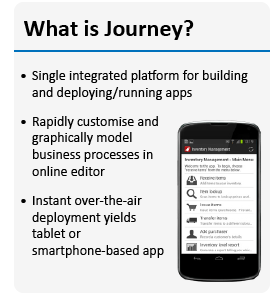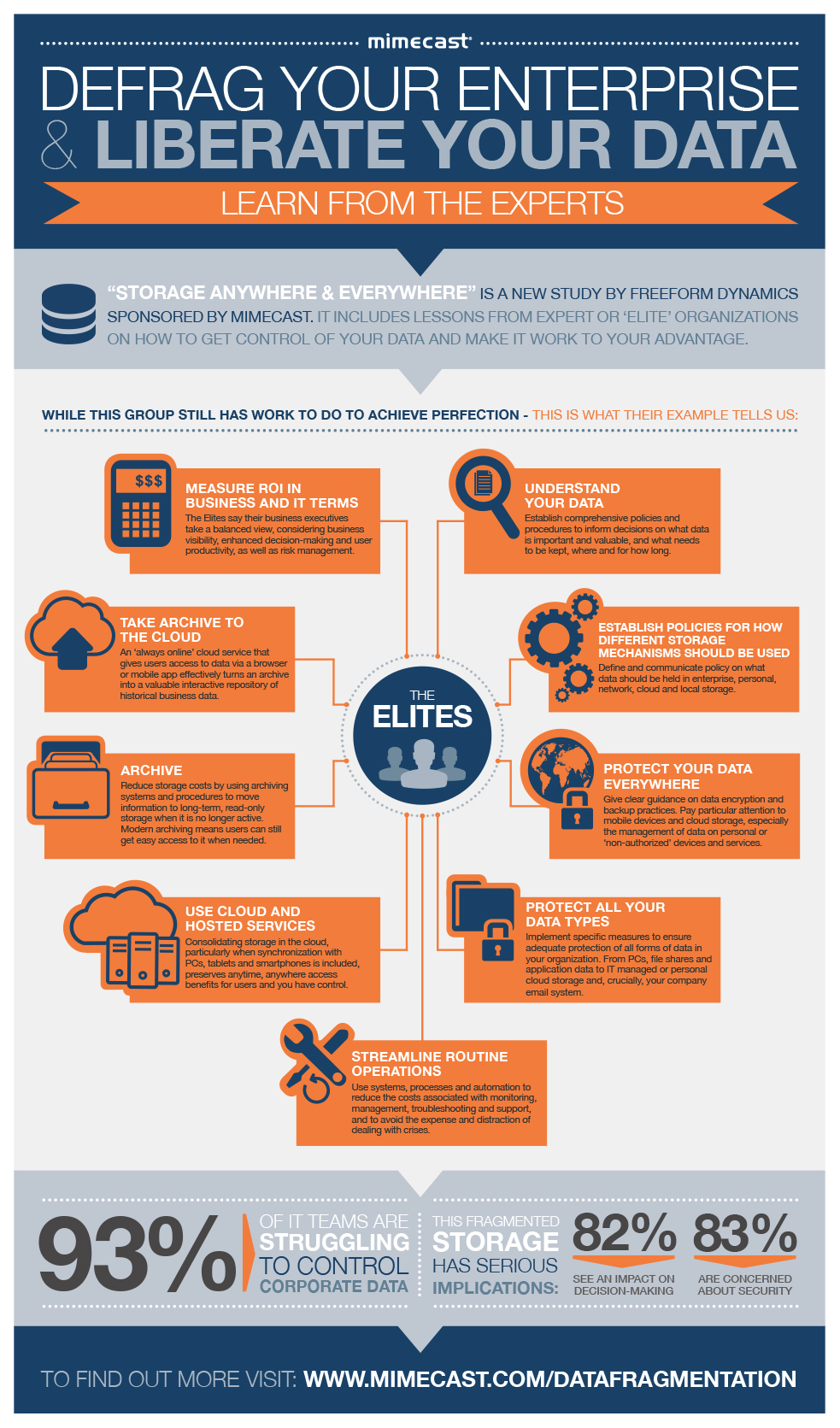Category Archives: SaaS
Problemen recente storing Office365?
Recente storing Office365
Heeft u onlangs problemen ondervonden door de recente storing van Office365? Wij zorgen dat uw bedrijf bereikbaar blijft!
Bekijk onderstaande video
WHITE PAPER: POST-MIGRATIE RISICO'S
OFFICE365
Migreren van een On-Premise omgeving naar Office365, wil niet zeggen dat er geen plan gemaakt hoeft te worden ter voorkoming van storingen en het verkleinen van bedrijfscontinuïteit risico.
Zoals met bijna iedere grote verhuizing of verandering is er een verhoogd risico op de bedrijfscontinuïteit door een grote kans op onvoorziene storingen en of gebeurtenissen bij de ingebruikname van de nieuwe cloud omgeving.
Lees hieronder verder hoe een veilige transitie voor ieder type bedrijf mogelijk gemaakt kan worden bij de overweging om naar de cloud te gaan. En voor die bedrijven die inmiddels al zijn gemigreerd naar de cloud, kan de email omgeving verder worden geoptimaliseerd tegen storingsuitval en beveiligingsproblemen.
Met dank aan Neil Murray, Chief Technology Officer, Mimecast.
De Whitepaper geeft inzicht in:
- Wat u kunt verwachten bij een migratie naar Office365
- De te verwachten implicaties indien u volledig vertrouwt op standaard Exchange Online Security
- De noodzaak voor archiveren van emails en de e-discovery functionaliteit
- Het verkleinen van het downtime risico bij het gebruik van één cloud provider
U kunt de whitepaper hieronder opvragen:
[formidable id=17]
Introducing G4Cloud AWS Showcase Site
G4Cloud
Introducing
AWS Showcase site
The term "cloud computing" refers to the on-demand delivery of IT resources via the Internet with pay-as-you-go pricing. Whether you are running applications that share photos or support the critical back-office operations of your business, you can benefit from on-demand access to flexible and low cost IT resources.
Six Advantages and Benefits of Cloud Computing

Trade capital expense for variable expense
Instead of having to invest heavily in data centers and servers before you know how you’re going to use them, you can use cloud computing and only pay when you consume computing resources, and only pay for how much you consume.

Benefit from massive economies of scale
By using cloud computing, you can achieve a lower variable cost than you can get on your own. Because usage from hundreds of thousands of customers are aggregated in the cloud, cloud computing providers such as Amazon Web Services can achieve higher economies of scale which translates into lower pay as you go prices.

Stop guessing capacity
Eliminate guessing on your infrastructure capacity needs. When you make a capacity decision prior to deploying an application, you often either end up sitting on expensive idle resources or dealing with limited capacity. With Cloud Computing, these problems go away. You can access as much or as little as you need, and scale up and down as required with only a few minutes’ notice.

Increase speed and agility
In a cloud computing environment, new IT resources are only ever a click away, which means you reduce the time it takes to make those resources available to your developers from weeks to just minutes. This results in a dramatic increase in agility for the organization, since the cost and time it takes to experiment and develop is significantly lower.

Stop spending money on running and maintaining data centers
Focus on projects that differentiate your business, not the infrastructure. Cloud computing lets you focus on your own customers, rather than on the heavy lifting of racking, stacking and powering servers.

Go global in minutes
With Cloud Computing, you can easily deploy your application in multiple regions around the world with just a few clicks. This means you can provide a lower latency and better experience for your customers simply and at minimal cost.
Get the facts on Cloud Computing
Learn more about cloud computing with AWS through the pre-recorded webinar below. It will answer the following questions:
- What is cloud computing?
- What are the benefits of cloud computing?
- Who is using the cloud and what are they using it for?

AWS Webinar: What is Cloud Computing?
For more indepth other Showcases from Amazon Web Services click on the logo below.
A Cloud Computing Guide for Small Businesses
A Cloud Computing Guide For Small Business
To learn more about cloud computing in small business, checkout the infographic below created by New Jersey Institute of Technology.
Cloud computing is one of the major technological buzzwords of the mid-2010s, and one that is certainly accompanied by no shortage of hype. Cloud usage is often claimed to improve every aspect of technology and computing, with hundreds of firms lining up to declare that they have truly figured out how to leverage this type of computing. Instead of dealing only with empty claims, though, it is better to examine what this type of computing has actually done for the business world. A quick look at what cloud computing is and what it can accomplish may allow you to separate reality from the fiction surrounding cloud computing. To learn more, checkout this infographic created by the New Jersey Institute of Technology’s Online MBA in Information Systems program.
With thanks to New Jersey Institute of Technology, to find out more visit their site: http://graduatedegrees.online.njit.edu/mba-resources/mba-infographics/cloud-computing-in-small-business/ or http://bit.ly/1JIahX4
The Vault Is Dead: Why On-Premises Email Is History
The Vault Is Dead:
Why On-Premises Email Is History
Customers are increasingly trading in their old, bloated, expensive on-premises email archives for cloud services. Over time, these last-century technologies will take their place in the history of computing – the world, technology and the needs of customers have simply moved on.
Early adopters of email archiving have been staring angrily at their on-premises vault and watching it grow since the end of the last century. As wholly on-premises installations, these solutions were designed to alleviate the long-term email storage problems associated with Microsoft Exchange 5.5 and their rampant PST generation habits. IT departments quickly found that storing email on the primary mail server and stubbing it back to end users’ in-boxes meant their Exchange environment was more stable and efficient.
About 20 years ago, when the concept of an email archive first emerged, IT professionals couldn’t predict what an email archive of the future would look like. They certainly had no idea how large an email infrastructure could get. As users continue to send and receive massive amounts of email, and as attachment sizes continue to grow, old vaults have reached their storage capacity and as a result, demand more new hardware to manage the overflow of data.
The scalability of on-premises archives has been doomed from the beginning, as its growth is at the mercy of allotted IT budgets. IT teams have run out of patience trying to support this now vintage solution.
Then there’s the actual effectiveness, utility and usefulness of on-premises vaults. Historically, email archiving has been the domain of the IT administrator, and in some instances, legal counsel or compliance teams. Generally, the vault would have been deployed to solve either a storage management problem on Exchange, or a compliance and e-discovery problem affecting the business. Neither of these scenarios has any direct benefit for employees whose email is being stored after all – and it is these people who are demanding more of these solutions in today’s corporate environments.
You can read the full article at the Mimecast blog: https://www.mimecast.com/blog/
Checkout the free fragmented data storage report!
Fragmented data storage, what are the risks?
Checkout the report!
Do you have fragmented data storage? Understand the risks. Find a solution..
This independent report from Freeform Dynamics offers a detailed analysis of the state of corporate data storage. It paints a worrying picture of fragmented storage, security risks, compromised decision-making and flawed protection policies.
But it’s not all bad news.

The report also identifies the solution that nearly three quarters of those surveyed will turn to as they seek to regain control, cut costs and ensure corporate data is put to work as a business enabler.
Find out how your data storage strategy compares:
- Are you really in control of data storage?
- Is your corporate data at risk?
- Are your costs out of control?
- Is there a better way?
Get your answers now. Read the report
G4Cloud's partnership with Mimecast can help you control your data and make it work to your advantage. Read the report and find out the state of your corporate data storage.
Download your free report here.
Increase productivity with the Google Apps Show
Increase your productivity!
G4Cloud|Go for Cloud
Kicks-off 2015
with:
The google Apps show
subscribe via You Tube and increase productivity
with the latest Tips & Trics

Watch the first episode below:
From good to the great -why Office365 needs Mimecast
From Good to the Great – Why Office365 Needs Mimecast

Office365 is positioned by Microsoft as a one-stop-shop, and on the surface looks like something of a panacea for a business looking to outsource email and stop managing an on-premises Exchange server. For many businesses, particularly in the SMB space, it is.
But for larger companies, or those for whom email is a mission critical application, Office365 may not be quite so alluring. In general, Mimecast customers fall into that category – they want to use best practice cloud services to protect email from threats, and store the data in a secure, highly available archive. And amongst our customer base we’ve seen a preference for keeping Exchange on-site – there’s strong interest in Exchange 13 – or moving to a hybrid model with some mailboxes on-site and others in the cloud.
The blockers to Office365 adoption seem to fall into three categories.
– Archiving doesn’t offer sufficient levels of compliance and
eDiscovery capabilities
– Uptime is a concern
– Exchange Online Protection may not represent best
practice email security
We also think a further need will emerge, for a single archive of multiple types of unstructured data, fully searchable both for eDiscovery purposes and for day to day use by end users from their laptops, smart-phones and tablets. An Enterprise Information Archive for Office 365, to use Gartner terminology. Watch video below. The complete article can be read here.
G4Apps Enterprise Mobile Apps Development

Enterprise Mobile
Apps
Platform
Journey
introduced by

G4Cloud B.V. introduces the Journey platform by our G4Apps|Go For Apps business unit in the Netherlands.
The Journey platform enables G4Apps to assist companies and organisations with rapid development of Customised Enterprise Mobile Business Apps. The developers can easily built Enterprise Business Apps themselves in a fast way.
The platform is a 100 % Cloud Solution and delivered to customers as a Software as a Service (SaaS) model.
The Journey advantage!

Journey offers:
Reduction of building time of Apps with a factor of 10
Real-Time on the air testing on the device during programming
Support of the major Android/iOS devices

This Results in:
Increased Revenue
Roll out solutions in weeks rather than months
Deliver solutions that enable accurate data and decision making in real time
Reduced Costs
Roll out solutions up to 10x times faster
No need for large development teams
No need to care about technological complexities
Adapt solutions rapidly to changing demands
Leverage existing tech skills – minimal training required
Introduction G4Cloud News Papers
Stay ahead of the
latest
Cloud Computing News!
G4Cloud introduces two newspapers a daily version and a weekly version. Both represent the latest news about Cloud Computing, SaaS, Data Analytics/Migration, Security, Compliancy and Information Banking.
Subscripe page: paper.li
See snapshot below of the weekly news version.
To read the full version goto: www.g4cloudnews.com






